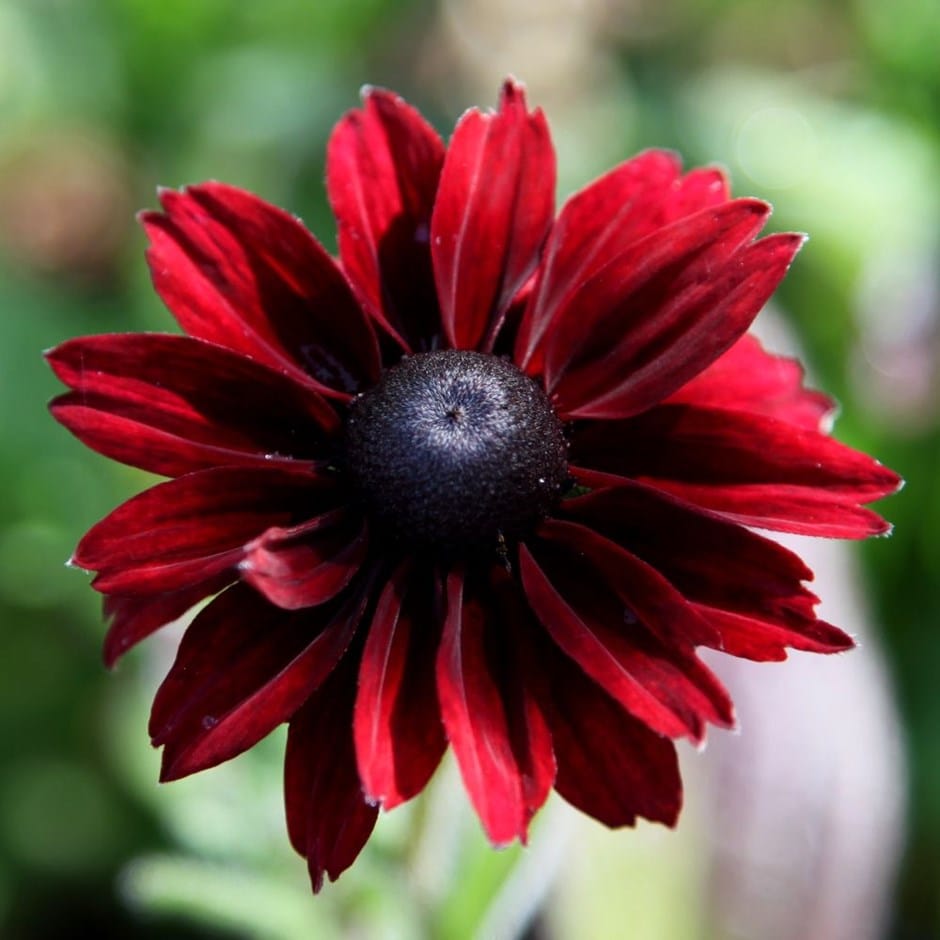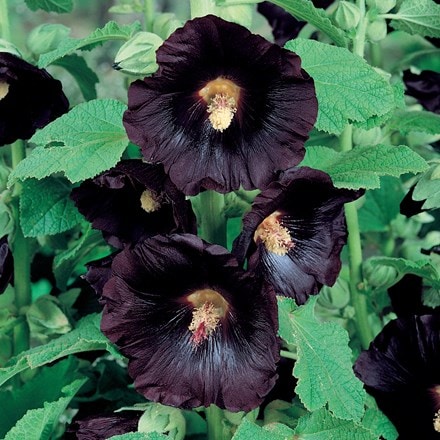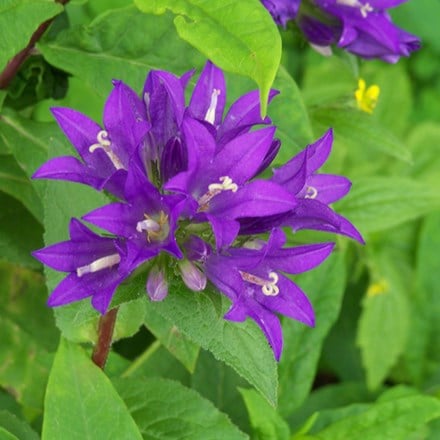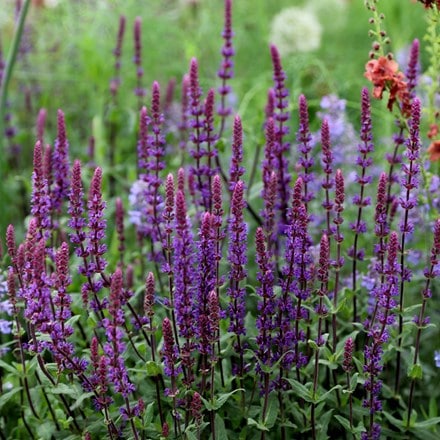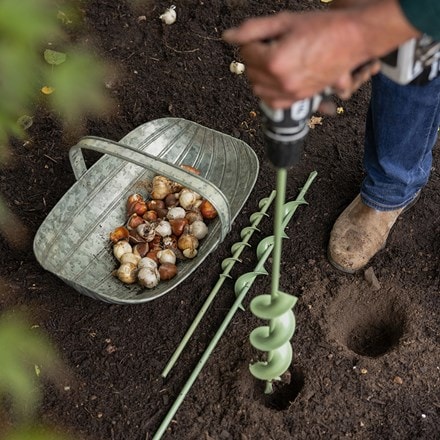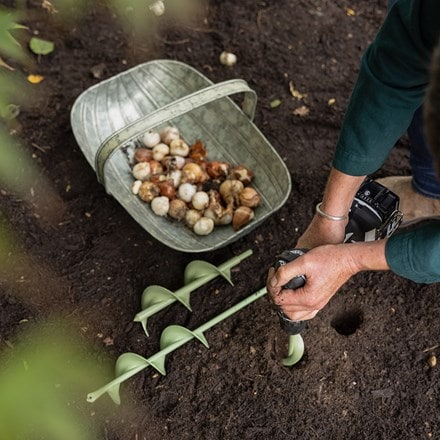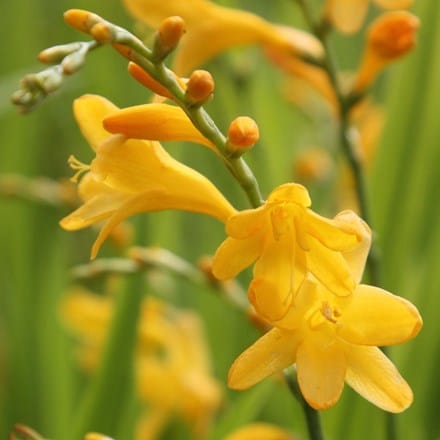Rudbeckia hirta 'Cherry Brandy'
black-eyed Susan
- approx 25 seeds
- £3.99
- available to order from spring
Delivery options
- Seed Packets (only) £2.99
- Position: full sun
- Soil: moderately fertile, moist but well-drained soil, or general-purpose compost for contaimers
- Rate of growth: fast
- Flowering period: July to October
- Hardiness: tender (will need frost protection)
This striking, cultivated variety stands out for its deep, velvety red blooms held above sturdy stems, adding bold colour to borders from midsummer into autumn. Each flower has a rich crimson-maroon tone with dark central cones, creating a strong contrast that holds its intensity for weeks. Plants form an upright habit with bristly green leaves that provide a textured backdrop to the daisy-like flowers.
Rudbeckia hirta ‘Cherry Brandy’ is easy to grow, thriving in full sun well-drained soil, and performs well both in beds and containers. The long-lasting blooms are excellent for cutting, holding up well in arrangements, while in the garden they attract bees and other pollinators.
This short-lived perennial flowers freely over a long season, making it an ideal choice for adding reliable late-summer colour, and while commonly grown as an annual, this black-eyed Susan can overwinter if protected from frosts.
Rudbeckia hirta ‘Cherry Brandy’ is easy to grow, thriving in full sun well-drained soil, and performs well both in beds and containers. The long-lasting blooms are excellent for cutting, holding up well in arrangements, while in the garden they attract bees and other pollinators.
This short-lived perennial flowers freely over a long season, making it an ideal choice for adding reliable late-summer colour, and while commonly grown as an annual, this black-eyed Susan can overwinter if protected from frosts.
Plant out after the last frost, choosing a sunny position with well-drained soil. Water regularly during dry spells in their first few weeks to help them establish, but avoid waterlogging. Apply a general-purpose fertiliser in early summer to encourage strong growth and flowering.
Deadhead faded blooms regularly to prolong the display, or leave some seed heads in late autumn for wildlife and self-seeding. Tall stems may need staking in exposed sites to prevent wind damage. Remove spent plants after flowering if you don’t want them to self-seed, or allow them to drop seed for future plants.
Deadhead faded blooms regularly to prolong the display, or leave some seed heads in late autumn for wildlife and self-seeding. Tall stems may need staking in exposed sites to prevent wind damage. Remove spent plants after flowering if you don’t want them to self-seed, or allow them to drop seed for future plants.
Using seed trays and good-quality seed compost, sow from late winter to mid spring, covering the seed very lightly or just pressing it into the surface, as light can help germination. Keep the compost moist but not wet and maintain a temperature of 18-20°C (64-68°F).
Transplant seedlings into individual pots when large enough to handle and grow on in cool, frost-free conditions. Harden off before planting outside after last frost, spacing plants to allow good airflow.
Transplant seedlings into individual pots when large enough to handle and grow on in cool, frost-free conditions. Harden off before planting outside after last frost, spacing plants to allow good airflow.
